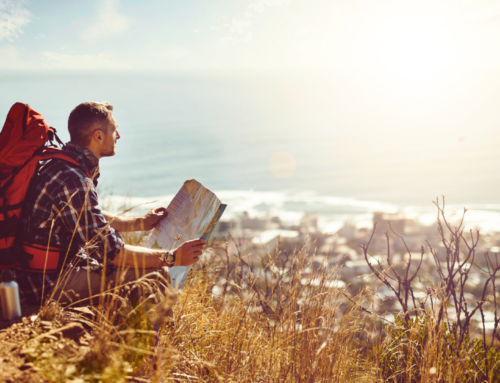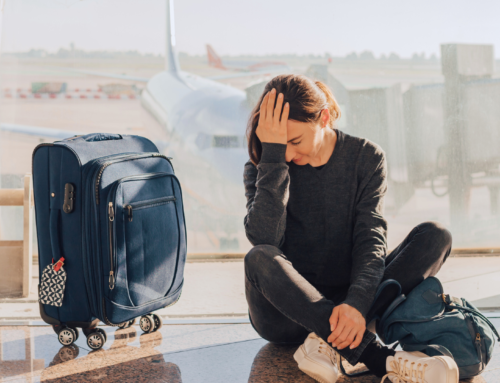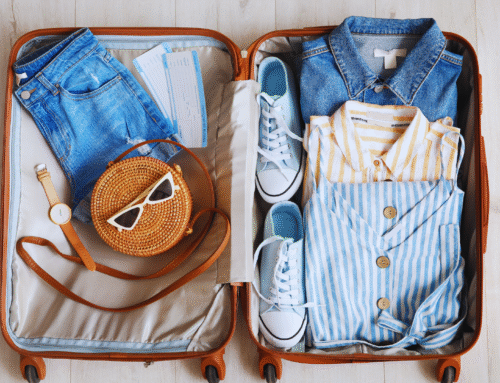Traveling can be an exhilarating experience, but it also brings unique challenges that can disrupt plans and compromise safety. Being aware of essential safety tips can significantly enhance a traveler’s experience and help avoid potential dangers. Understanding local customs, taking precautions with money and belongings, and having a reliable plan can make all the difference.
Every destination has its own set of risks, and travelers must stay informed. Basic safety measures, such as researching areas to avoid and staying alert in public spaces, can protect against theft and other hazards. Knowing emergency contacts and local laws can empower travelers to handle unexpected situations effectively.
Before embarking on a journey, travelers should equip themselves with the knowledge necessary for a secure trip. Preparation is key to preventing mishaps and ensuring a smooth adventure. Engaging with practical safety tips can lead to a more enjoyable and worry-free travel experience.
Essential Pre-Travel Safety Preparation
Pre-travel safety preparation is crucial for ensuring a smooth journey. It involves gathering vital information about the destination, understanding local laws and customs, and securing appropriate insurance coverage.
Research Your Destination
Travelers should conduct thorough research about their destination. This includes checking travel advisories issued by the State Department, which provide vital information on safety conditions, civil unrest, and potential health risks.
Checking local news and government websites helps gather insights into current events that might affect safety.
Vaccination requirements can vary widely, so it’s essential to know which vaccines are recommended or mandatory. This ensures compliance and minimizes health risks during the trip.
Understand Local Laws and Customs
Understanding local laws is vital for avoiding misunderstandings or legal issues. Each country has its unique set of rules regarding behavior, dress codes, and acceptable conduct.
Travelers should familiarize themselves with regulations on photography, alcohol consumption, and public behavior.
Recognizing local customs, such as greetings or dining etiquette, demonstrates respect and can enhance interactions with locals. This understanding can also help avoid unintentional offenses.
Secure Travel Insurance
Travel insurance offers essential protection against unexpected events. It covers trip cancellation due to unforeseen circumstances like illness or emergencies, ensuring financial losses are minimized.
Travelers should compare different insurance plans and select one that fits their specific needs, such as coverage for medical emergencies, lost luggage, and personal liability.
Registering with the Smart Traveler Enrollment Program provides additional security, as it keeps travelers informed about local emergencies and helps U.S. embassies reach them in case of crises.
Protecting Your Documents and Finances
Travelers should prioritize the security of their documents and finances. Taking proactive steps can ensure a secure journey while minimizing the risk of identity theft and financial loss.
Safeguard Important Documents
Travelers must keep important documents secure. This includes passports, visas, travel itineraries, and insurance papers.
- Use a Travel Wallet: Consider using a travel wallet that can store multiple documents securely.
- Digital Copies: Create digital copies of essential documents and store them in cloud services for quick access.
Secure documents by storing them in hotel safes when not needed. Avoid carrying all important items in one place to mitigate loss if items are stolen.
Notify Your Bank Before Traveling
Notifying banks about travel plans is critical for avoiding transaction problems.
- Inform Financial Institutions: Advise banks of travel dates and destinations to prevent flagged transactions.
- Set Up Alerts: Use banking apps to allow for instant transaction alerts.
This practice can help quickly identify unauthorized charges and ensure that cards continue to work while traveling. It’s an essential step for maintaining control over finances overseas.
Prevent Identity Theft
Identity theft poses a significant risk during travel.
- Monitor Accounts: Regularly check bank and credit card statements for unusual activity.
- Utilize Credit Cards: Use credit cards instead of debit cards for online purchases, as they offer better fraud protection.
Consider employing identity theft protection services during trips. Implementing security measures ensures that personal and financial information stays safe and secure throughout the travel experience.
Personal Safety and Well-Being While Traveling
Maintaining personal safety and well-being during travel is crucial for a pleasant experience. Travelers should remain vigilant and prepared to ensure their security and health.
Stay Aware and Trust Your Instincts
Situational awareness is key. Travelers should stay alert to their surroundings and trust their instincts. If something feels off, they should take action, such as leaving the area or finding a safe space.
Tips for Staying Aware:
- Frequent Scanning: Regularly look around to assess the environment.
- Avoid Distractions: Limit phone usage in unfamiliar places to enhance focus.
- Know the Area: Familiarize oneself with local customs and landmarks.
A heightened sense of awareness can deter potential threats and help maintain personal safety.
Avoid Common Scams and Pickpocketing
Travelers should educate themselves on prevalent scams and tactics used by pickpockets. Recognizing these common practices can make a significant difference.
Common Travel Scams:
- Fake Tour Guides: Be wary of unsolicited offers for tours.
- Overpriced Transportation: Only use reputable taxi services or ride-sharing apps.
- Distraction Techniques: Pickpockets often work in teams—one may distract while another steals.
Using anti-theft bags, such as crossbody or money belts, can also help protect valuables.
Protect Your Health and Well-Being
Health should be a priority while traveling. Staying hydrated, carrying a portable charger, and knowing basic phrases can enhance the travel experience.
Essential Health Tips:
- Hydration: Drink plenty of water to prevent dehydration, especially in hot climates.
- First Aid Kit: A small first-aid kit should include band-aids, antiseptic wipes, and any necessary medications.
- Physical Well-Being: Regular activity, even walking, can boost health during trips.
Understanding local health services and facilities can also aid in case of health emergencies.
Emergency Preparedness and Contacts
Being prepared for emergencies is essential. Travelers should have emergency contacts readily available and familiarize themselves with local emergency services.
Emergency Preparedness Checklist:
- Emergency Contacts: Keep a list of local emergency numbers, including police, fire, and medical services.
- Know Your Location: Have a copy of important addresses, such as the nearest hospital or embassy.
- Plan for Disasters: Learn about local risks like natural disasters and the appropriate responses.
Staying informed and prepared enhances safety and well-being while traveling.
Secure Transportation and Local Navigation
Navigating a new location safely is essential for any traveler. Understanding secure transportation options and local navigation can significantly enhance the overall travel experience. Here are important considerations for ensuring safety while moving around in unfamiliar areas.
Choose Reputable Transportation
Selecting a trusted transportation method is crucial. Travelers should opt for official taxis or well-known ride-sharing apps, as they generally follow safety regulations and provide traceable services. It is advisable to avoid unmarked or unofficial vehicles, as these can pose security risks.
When in doubt, asking locals for recommendations on transportation services can provide valuable insights. Using reputable services can enhance safety and give travelers peace of mind.
Use Technology for Safer Travel
Modern technology serves as a valuable ally for travelers. Using a Virtual Private Network (VPN) ensures that personal information remains secure, especially when accessing public Wi-Fi networks. This step minimizes the risk of identity theft or data breaches.
Utilizing navigation apps that allow users to download offline maps is essential. This feature ensures travelers can navigate without relying on potentially insecure internet connections. Additionally, location-sharing features help friends or family stay updated about a traveler’s whereabouts, enhancing overall safety.
Share Your Itinerary and Travel in Groups
Communication is key in unfamiliar settings. Travelers should share their detailed itineraries with trusted individuals. This practice ensures that someone knows their intended plans and can act in case of emergencies.
Traveling in groups is particularly effective. It not only enhances safety but also allows individuals to support each other in new environments. Groups are often less targeted by criminals compared to solo travelers, making this a smart choice for anyone venturing into new areas.
Learn From Locals and Respect Cultural Norms
Gaining insights from locals can enrich a travel experience. Locals often provide guidance on safe areas and advise against places known for higher crime rates. Asking questions can lead to discovering hidden gems that are off the typical tourist path.
Respecting local customs plays a vital role in ensuring safety. Understanding cultural norms can help prevent misunderstandings and foster goodwill. This respect not only enhances personal encounters but also contributes to a more enjoyable and harmonious travel experience.






Leave A Comment